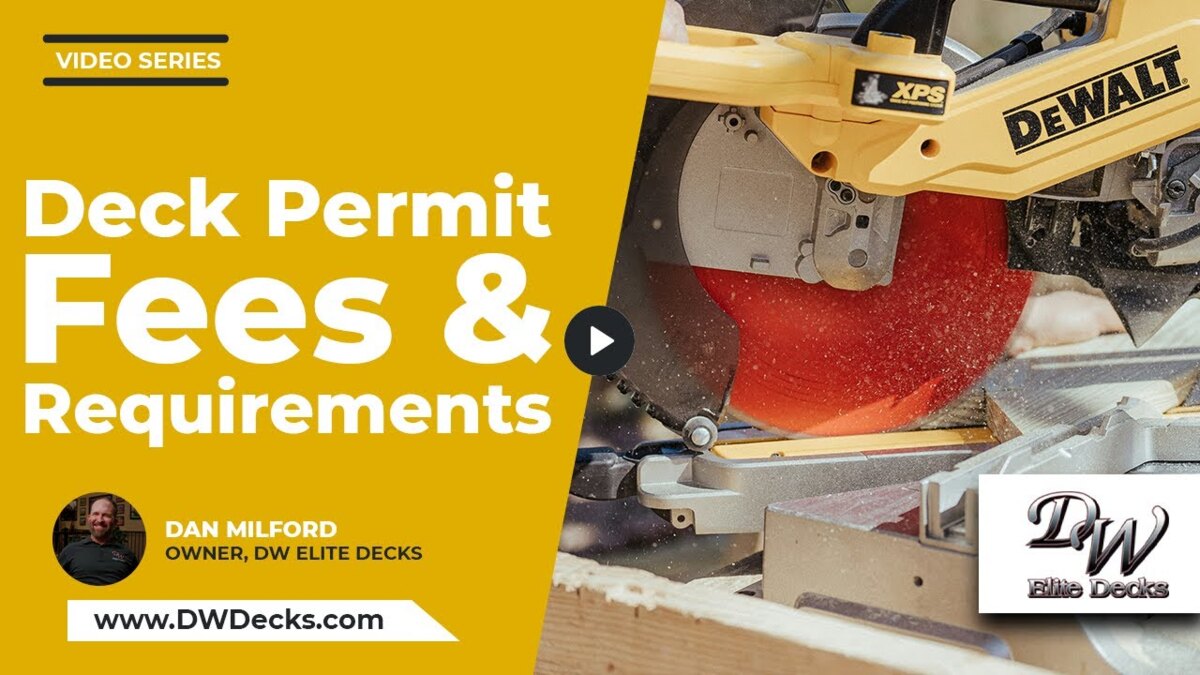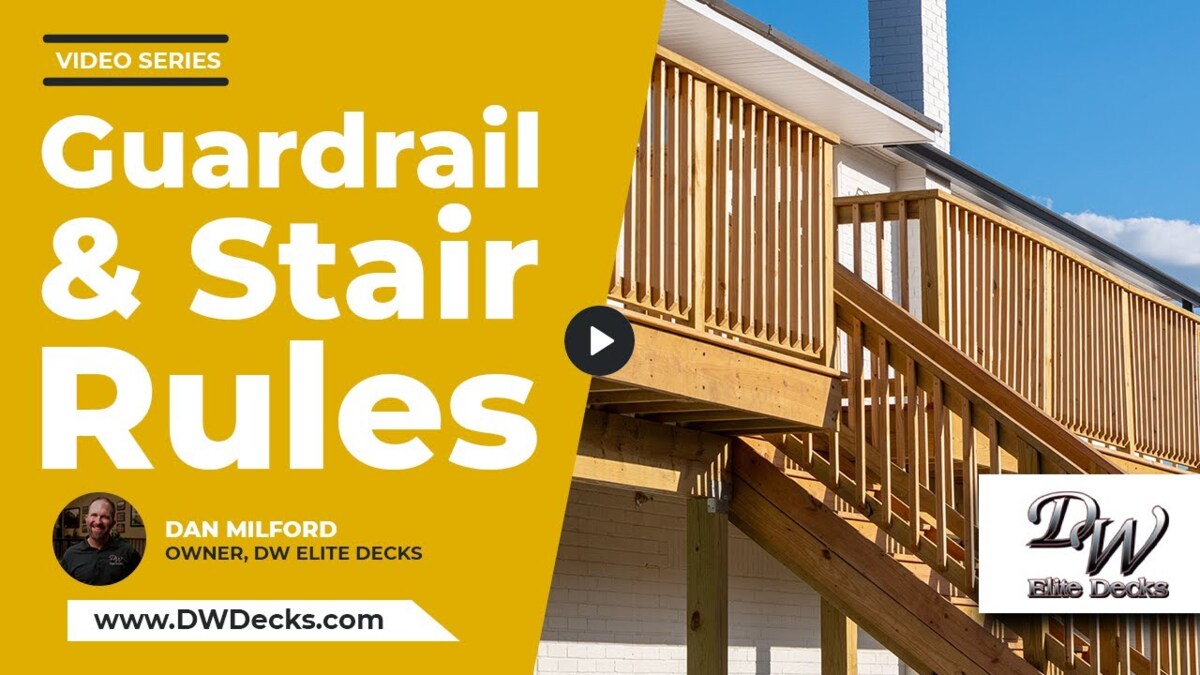A deck has to feel solid. The way you install decking, framing, and railings is what makes that possible. The truth is, most failures don’t come from big design flaws. They come from small things like using nails where screws are required or forgetting proper spacing. Those details add up fast.
At DW Decks, we stick to the code and the rules set by the manufacturer. That keeps inspectors happy, warranties valid, and the homeowner confident the deck will hold up.
Why Code Compliance Matters
The International Residential Code (IRC) sets the rules for how a deck must be built. These rules cover joist connections, post attachment, stair design, and railing safety. Following them is not a choice. It makes sure the deck can handle daily use without failure.
We also follow product rules. Decking and railing makers give their own steps for installation. By using both the IRC and brand rules, we build decks that are safe, strong, and covered by warranty.
Key Takeaway: A deck is only as safe as the rules followed during installation. Both code and brand guidelines matter.
Framing: The Backbone of the Deck
How to Frame a Deck Correctly
Deck framing holds everything together. Joists must be attached to the rim plate with the right hardware, and posts must be secured so they resist movement.
If framing is not built to code, the deck may shift or fail under weight. That’s why we use approved fasteners, joist hangers, and connections designed to meet code.
Common Mistakes in Deck Framing
- Using nails instead of structural screws or bolts
- Skipping joist hangers
- Not checking spacing and alignment
- Failing to secure posts with proper brackets
Pro Tip: Always use hardware that is listed for outdoor use. Interior fasteners may rust and weaken in just a few years.
How to Install Decking the Right Way
When we install decking, we follow the brand’s specifications. Each product has spacing, fastening, and layout rules. For example, composite decking often requires specific gap sizes to handle expansion.
A proper install prevents warping, cupping, or cracking. It also protects the manufacturer’s warranty. Skipping even a small detail can void coverage.
Key Takeaway: Proper installation is not only about looks. It protects your investment and ensures the deck surface lasts.
Need expert help to install decking, framing, or railings? Contact DW Decks today for a free consultation and a detailed project plan.
Railings: Safety Above All
Why Proper Railing Installation Matters
Guardrails and handrails keep people safe. They must meet exact height and spacing standards set by the IRC. Loose or weak railings are one of the biggest hazards on a deck.
How We Install Railings
- Posts are attached to rim plates with approved brackets
- Railings are installed at the required height
- Balusters are spaced to meet safety codes
- All connections are tightened and inspected
What About Special Designs?
Sometimes, a homeowner wants a unique layout or material that is outside the typical code method. In those cases, an engineer review may be required. An engineer can confirm the design is safe and provide a stamped approval for permits.
This step adds cost, but it guarantees the deck will meet all safety requirements.
Why Work With Professionals
Deck building is more than cutting boards and driving screws. It requires knowledge of codes, approved hardware, and manufacturer rules. A mistake in any of these areas can lead to unsafe conditions or failed inspections.
Hiring trained deck builders ensures:
- Compliance with local codes
- Manufacturer-approved installation
- Long-lasting safety and performance
Conclusion
When you install decking, framing, and railings the right way, you get more than a beautiful outdoor space. You gain peace of mind knowing your deck is strong, safe, and built to last.
At DW Decks, we treat every project as if it were our own home. If you’re ready to build a deck that adds value and safety to your property, contact us today to schedule a free quote.







